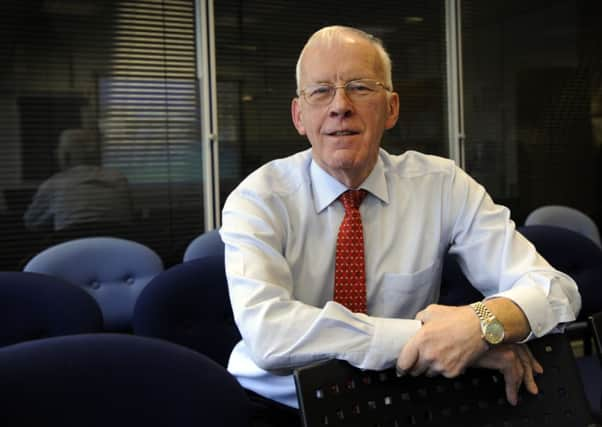Scottish independence: SNP exaggerated oil reserve


The self-made energy entrepreneur believes that dwindling oil reserves will “seriously hit” the economy, jobs and public services in just 15 years’ time.
Sir Ian said he decided to speak out because he was growing increasingly frustrated by the “wildly inaccurate misquoting” that had characterised the independence debate.
Advertisement
Hide AdAdvertisement
Hide AdIn an intervention that is damaging to the Yes campaign, Sir Ian said oil reserves would be down to “very low levels” by 2050 and warned that offshore oil and gas “cannot figure significantly” in Scotland’s medium-term economic calculations.
He also predicted that Scotland would have to import energy from England as oil declines and the UK becomes more reliant on shale gas deposits south of the Border.
“I believe the debate should not be about nationalism, but growth and economic success, and the quality of life for citizens and all that goes with that,” Sir Ian told the Energy Voice website. “Against these measures, it’s very hard not to conclude the case is heavily weighted
towards Scotland remaining in the UK and getting the best of both worlds – I want the best for
future generations of Scots.”
The former chairman of the Wood Group – the Aberdeen-based business he built into a energy services giant operating in 50 countries with a £7 billion turnover – said he spoke out as a father and grandfather.
He said he did not want to be faced with the “potential nightmare of future generations asking, long after I’m gone, ‘Why didn’t he speak up’?.”
Sir Ian said his knowledge of the oil industry was relevant to the debate.
Advertisement
Hide AdAdvertisement
Hide AdThe Scottish Government has made much of potential income from the North Sea when making its case for independence.
Sir Ian said that 43 billion barrels of oil and gas had so far come from Scotland’s offshore industry. He said estimates of what was still to come from the North Sea varied between 12 billion and 24 billion barrels – noting that Mr Salmond’s “most quoted central prediction” was the 24 billion figure.
Based on work he did for his Wood Review, the UK government study he conducted to maximise the potential of the North Sea, Sir Ian said: “Even with a more sympathetic tax and regulation framework, the likely best outcome, without new hydrocarbon regions being discovered, is between 15 billion and 16.5 billion barrels.
“The Scottish Government central prediction of what’s still to come is between 45 per cent and 60 per cent too high.”
He added that the Scottish Government’s prediction of £7bn per year in income from oil and gas revenues over the next five years was 40 per cent too high. He said: “The shortfall of £2bn per annum will have a significant impact on Scotland’s short-term economic case – potentially £370 less for every man, woman and child every year.”
He added that the Wood Review clearly indicated that most operators believed Scotland would attract more investment if it remained in the UK.
On renewables, Sir Ian argued that independence would see Scotland lose UK pricing subsidies and warned that the rest of the UK could import cheaper electricity from the continent.
The decline in oil and the rise in the English shale gas industry would change the energy map over the next 50 years. “This could see Scotland having to import hydrocarbons from England at significant cost to our balance of payments,” he said.
Advertisement
Hide AdAdvertisement
Hide AdDanny Alexander, the Chief Secretary to the Treasury, said: “In common with other independent forecasts, Sir Ian’s analysis shows that the Scottish Government’s oil projections are over optimistic and wrong.”
However, the SNP energy minister Fergus Ewing disagreed with the businessman’s analysis.
“Sir Ian is of course entitled to his views – but there is a wealth of expert opinion on the huge scale of Scotland’s long-term oil and other energy reserves, and the opportunities which that will offer us as an independent country,” Mr Ewing said.
“This is ultimately a debate about exactly how big Scotland’s remaining oil reserves are, and most countries are not nearly lucky enough to be in that fortunate position.”
SEE ALSO